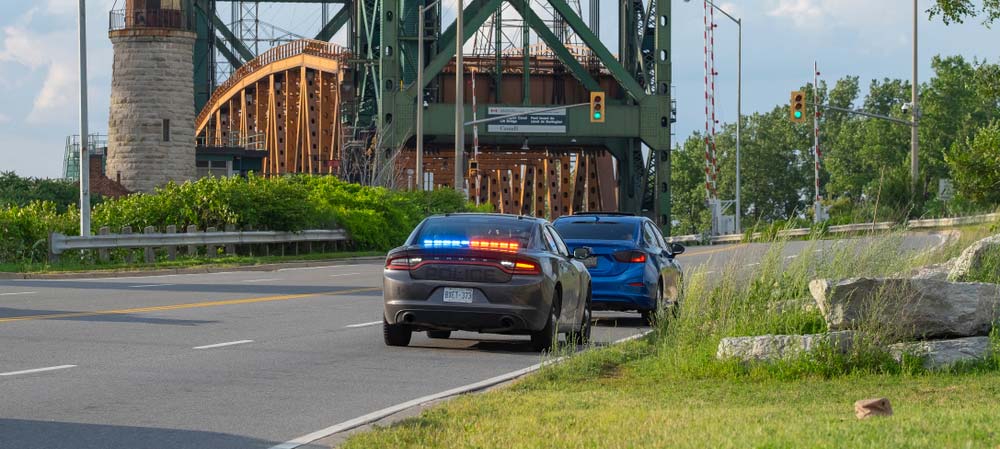For the most part, police identify drunk drivers by performing routine traffic stops. They could pull you over for something completely unrelated to drinking and driving. It isn’t until they approach the vehicle that they suspect you may be under the influence of drugs or alcohol. Other times, they observe you doing things that make them think you may be impaired. For example, if you’re swerving or driving way too slow, the police may think you are intoxicated. They pull you over for the purpose of determining if you are actually impaired. But, from time to time, the police in Clemson will set up a DUI checkpoint to see if motorists are driving under the influence.
A lot of people think that these checkpoints are illegal. If you’ve ever had a conversation with your friends about this, they may even agree that they’re illegal. However, they would be wrong. In almost every state, the police have every right to conduct a DUI checkpoint. As long as they follow certain rules and requirements, there is nothing to stop them from doing this. They set up these checkpoints for the purpose of keeping the roads safe for all drivers. The rationale is that, if they can get drunk or impaired drivers off the road before they get into an accident, they will be saving lives. And, this makes perfect sense.
Statistics show that more than 300,000 people drive drunk every day. Yet only 3,200 of these drivers are actually arrested. This means that about 95% of drunk drivers are never stopped. While they’re on the road, they put the lives of themselves and everybody else at risk. The police have a duty to protect people from getting injured or killed in DUI accidents in Clemson, South Carolina. If you have been charged with a DUI contact a DUI defense lawyer in South Carolina.
Checkpoints Do Need to Meet Certain General Requirements
No matter what state you live in, the police have to meet certain general requirements in order to conduct a DUI checkpoint. This is because a DUI stop constitutes a search and seizure and is protected by the 4th Amendment to the constitution. In order for a member of law enforcement to carry out a checkpoint, they have to show three (3) things:
- The public interest is being served by setting up the checkpoint
- The interference with people’s liberty is minimal
- The interference with liberty is reasonable and justified in relation to public safety
Basically, it is not hard for the State to meet this basic test. Clearly, it’s in the public’s interest to keep drunk drivers off the road. And, for the most part, the police aren’t going to detain motorists unless they appear to be under the influence of drugs or alcohol. It would be a waste of their time to harass certain drivers or look for reasons to write tickets.
South Carolina Has Very Specific Requirements for a Checkpoint
On top of the constitutional requirements, there are certain state requirements for a DUI checkpoint to be legal. Under South Carolina law, in order to be legal, a DUI checkpoint must show the following seven (7) things:
- Drivers can tell that it’s being conducted by the police
- It is set up in a safe place
- Drivers aren’t detained any longer than necessary
- Cars aren’t randomly stopped – there is some order or pattern
- There is someone supervising the checkpoint
- The police department has a written policy on how to conduct the checkpoint
- There is data showing that the town has a problem with drunk driving
- The safety of the drivers is their first priority
As long as it meets these guidelines, the checkpoint will be supported as valid.
Contact an Experienced DUI Attorney in Clemson if You’re Arrested at DUI Checkpoint
If you are arrested as the result of a DUI checkpoint, you’re going to need legal representation. Regardless of how unfair you may feel the checkpoint was, chances are, it was a legal stop. The only way to prove that this wasn’t the case is to hire an experienced DUI attorney in South Carolina who knows the law. They can look to see if the DUI checkpoint was valid and legal. And if it wasn’t, they’ll fight to get your charges reduced or dismissed.
Call today and schedule your initial consultation. If need be, one of our attorneys can come to visit you in jail or conduct the consultation over the phone. There is so much at stake, you really don’t want to handle this on your own. Like it or not, the prosecutor is going to assume the stop was legal unless your lawyer can prove it was not. Having an attorney can mean the difference between winning your case or being convicted. Call our office and talk to our helpful staff today.

